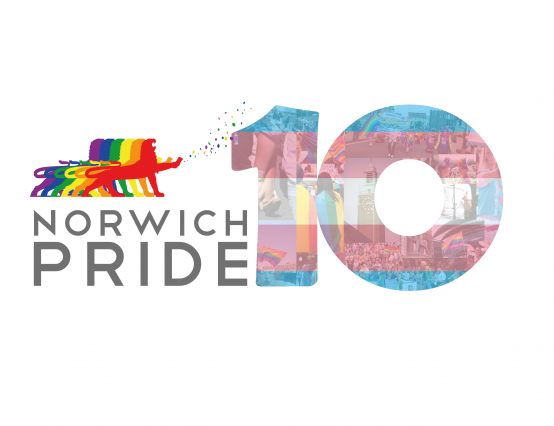Could you first introduce yourself to the reader?
Hello, I’m Harriet and I’m the Projects Manager for the Society of London Theatre and UK Theatre. I’m responsible for Audience Development programmes and major events, including the Olivier Awards, Theatre Craft and West End Live. Prior to joining SOLT/UKT I was a freelance Producer, General Manager and Project Manager.
What does your job involve? Give us the typical outline of a day?
It depends if I’m in the planning or delivery phase of the project. Planning days tend to be more focused on emails, phone calls and organisation. Others are full of meetings for projects and with potential partners and others I’m on site running an event. So there isn’t really a typical day – and that variety is one of the things I most enjoy about my job.
What’s great about your job?
SOLT and UK Theatre are unique organisations as guardians of the industry. I love working for an organisation that looks after the health of such an important industry and has an overview of the whole ecology of theatre, working with our members to support them and the industry. Stories are an age old way of communicating and being part of an industry that unites, entertains and moves people is pretty special.
On a daily basis, theatre is always a team effort. We work on projects for weeks or months, and am most professionally satisfied watching something bigger than the some of it’s parts come together and take on a life of its own; knowing we’ve all pulled together to make it happen. It’s always a thrill.
What are the bits you don’t like or find challenging?
I find it frustrating when I meet the perception that the Arts equate to being lazy or flaky. Professionals work extremely hard and productions and companies are well-oiled machines, just like any other business.
Theatre is a major economic contributor: The creative industries are worth £92 billion; London’s night time economy is £26 billion. 2017 figures showed £1 billion of ticket sales UK wide. It might look as though everything floats together magically; it’s our job to make it look that easy.
It’s also challenging to watch the arts being side-lined in the education system. Not only do the arts need a pipeline of future workers but these subjects provide life skills, creative outlets and transferable skills. You could do no arts subjects at school and end up in an arts career, or creative subjects and not use them directly in your career, but the skills continue provide benefit. I find the exclusionary either/or approach frustrating.
… and I read Geography at University. So I’m proof!
What are the highlights of your career to date?
Opening my exhibition ‘Curtain Up: Celebrating 40 years of theatre in London and New York’. I produced it in partnership with the V&A in London and the New York Public Library for Performing Arts at Lincoln Center in New York; it was a totally new experience for me to work in exhibitions, was several years in the planning and an example of really strong and rewarding teamwork.
I got to open it twice – once at the V&A in 2016 and then in New York in 2017. It was an incredible feeling and I am extremely proud of what we accomplished.
We are nearing our target of 1000 Ambassadors signed up to go into schools across the UK and talk to young people about careers in the theatre. The response has been amazing – and when we hit that target I will be thrilled!
How did you get into an arts job? Have you also worked outside the arts?
I used to temp in school and Uni holidays as an admin assistant, so when I realised I wanted to work in theatre, I could use those transferable skills to start out assisting. I said yes to everything and developed my skills from there. I produced independently on the Fringe which is a brilliant baptism of fire. I have worked outside the arts, but I soon realised that working towards a product I really care about is a crucial part of the job for me, it’s a good thing to know.
Can you describe your biggest challenge so far in your career? How did you overcome it?
Several years ago I worked for a company who treated me badly when I was very vulnerable. It really knocked my confidence and I thought I would never be good enough.
I struggled for a while but when I finally confided in some industry friends, they gave me some perspective, helped me job hunt and fortunately my next employers were really supportive.
Sometimes you learn how you don’t want to be as a leader, as well as how you do want to be. I hope you never have to learn that lesson – but it’s a way of turning the experience around.
It should say this is a rare occurrence, 99% of companies would never treat someone that way and none I have worked for since would dream of doing that!
I’m proud that SOLT/UKT have now launched the Theatre Helpline, an anonymous help and support line for anyone working in the industry, which is a brilliant initiative.
Have you noticed any changes in the industry? If so, what?
It’s gratifying to see the industry as a whole focusing so clearly on diversity and inclusion right now. There is a long was to go, but it is overdue and vital work that will produce a stronger, better industry. I’m looking forward to seeing the results.
You’ve been granted the ability to send a message to 16-year-old you. What do you say?
Walk before you can run. All the jobs you do give you skills, even if they are not the final plan, and they are all incredibly valuable. Never stop learning your craft.
Also - everyone is making it up as they go along – you just get a lot better at styling it out!
Do you have any advice for young people interested in doing your kind of job?
Absolutely:
- Do your research and get proactive; you will get there but no-one is going to hand it to you:
- Get involved in school, college, uni and community theatre – start doing. Show future employers that you’ve taken part.
- Join Mousetrap for ticket offers, Masterclass for free training. Look at theatres like Old Vic, Young Vic and National Theatre for their incredible young people’s programmes.
- Come to TheatreCraft in November – it’s totally free and if you want tips about how to get a career in theatre, it’s the place to be.
- Sign up to all the newsletters you can Arts Jobs; Creative and Cultural Skill’s, UKT/SOLT a job sites, Official London Theatre’s Inspiring Future Theatre section.
- See theatre. I may sounds obvious but see shows, read plays, follow theatres on social media – know your taste.
- If you make a mistake, own in – nobody’s perfect and no-one will mind if you’re honest about it.
- This industry is built on relationships and reputation – look after both. You will be surprised the opportunities you get offered for being competent, ego free and a pleasure to work with.
- Lastly – Welcome! This is an incredible industry and you have a place here.
Want to know what it takes to work in theatre? Head on over to Creative Choices, a website filled with handy careers advice in the arts.
Are you all set for your next production? Trinity College London can help you stay organised and avoid last-minute stress with their handy checklist.







0 Comments